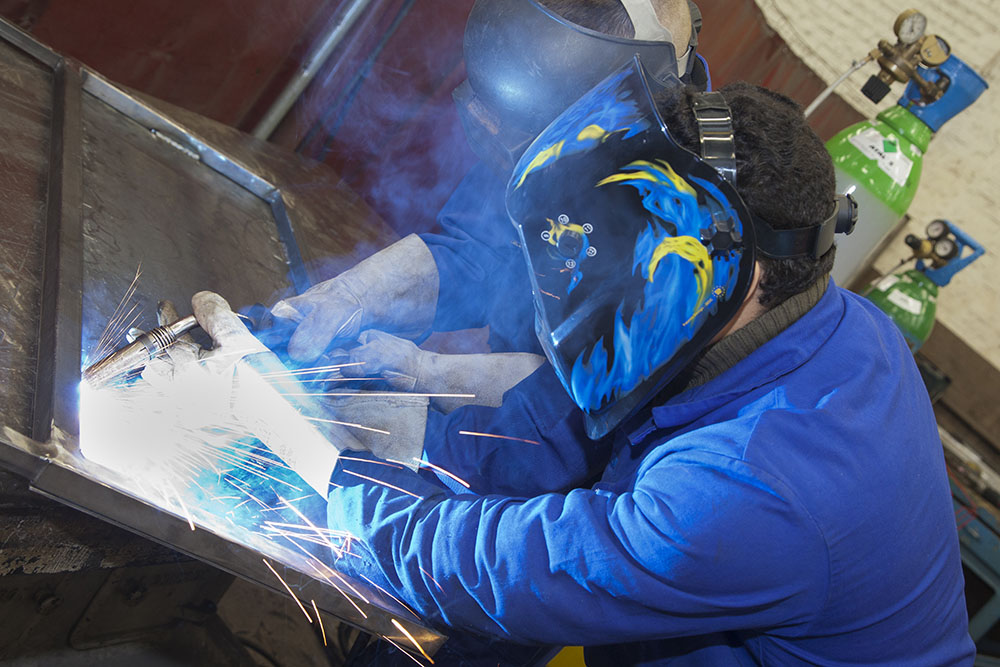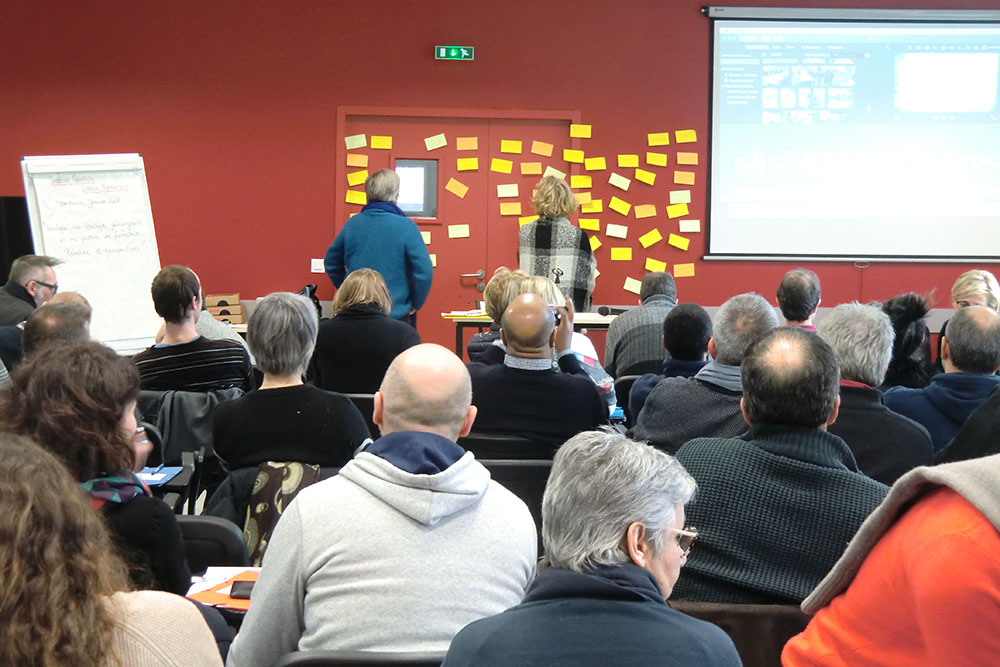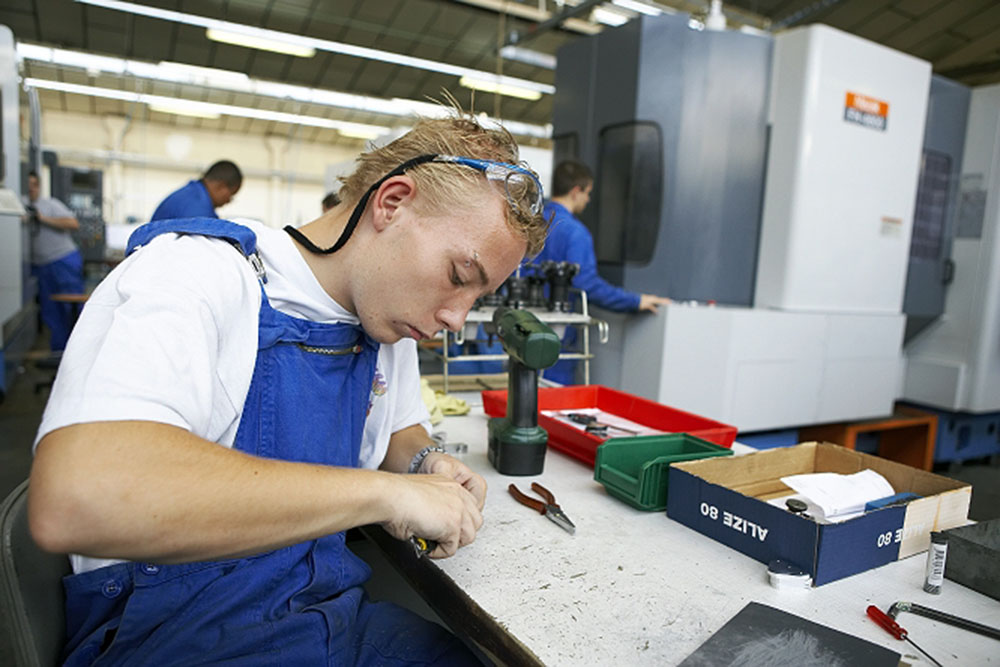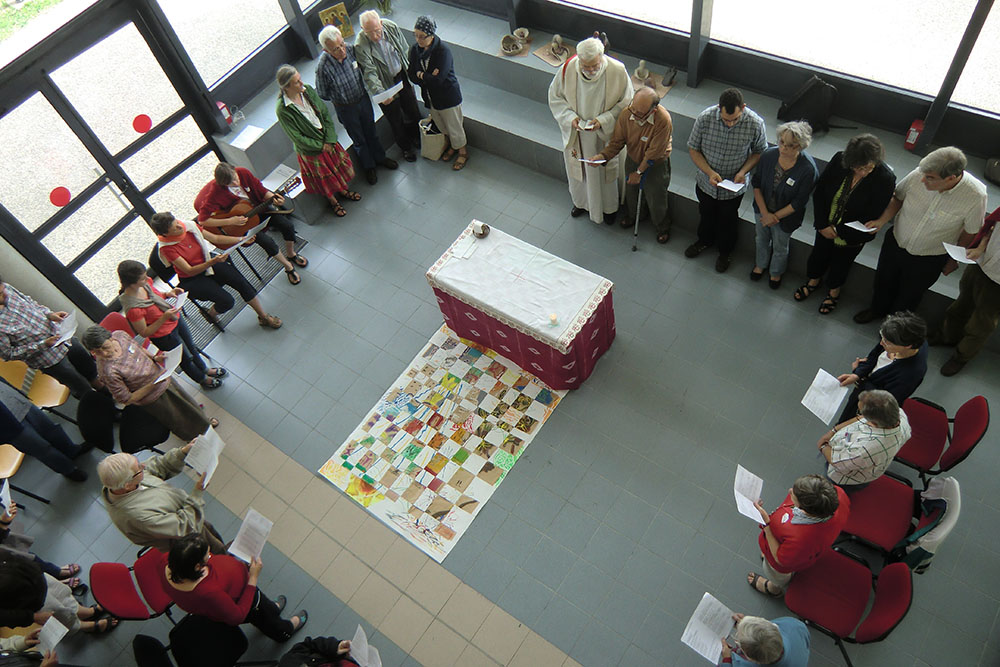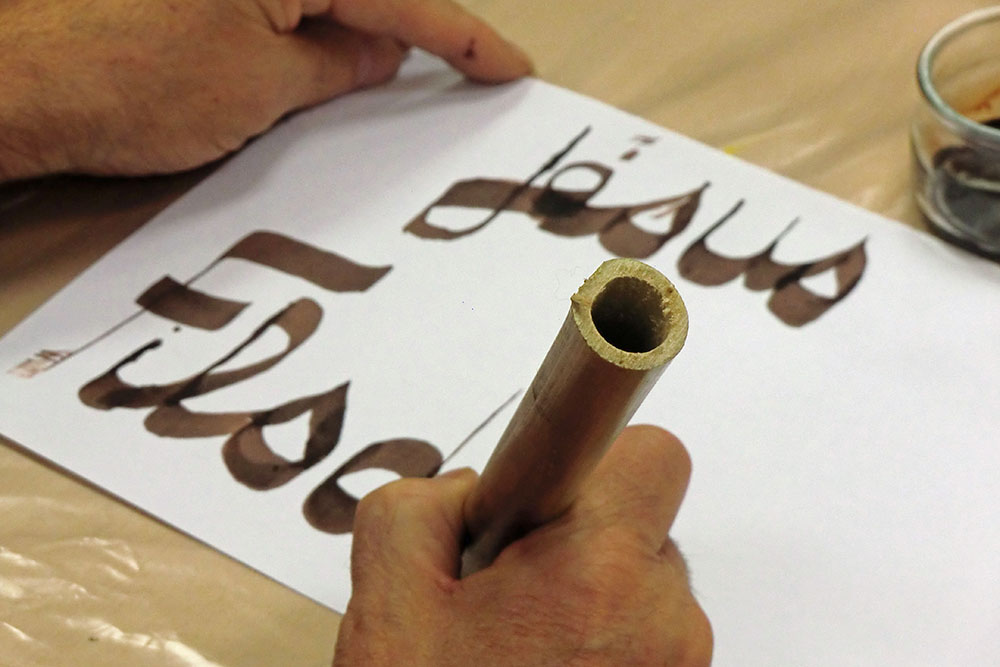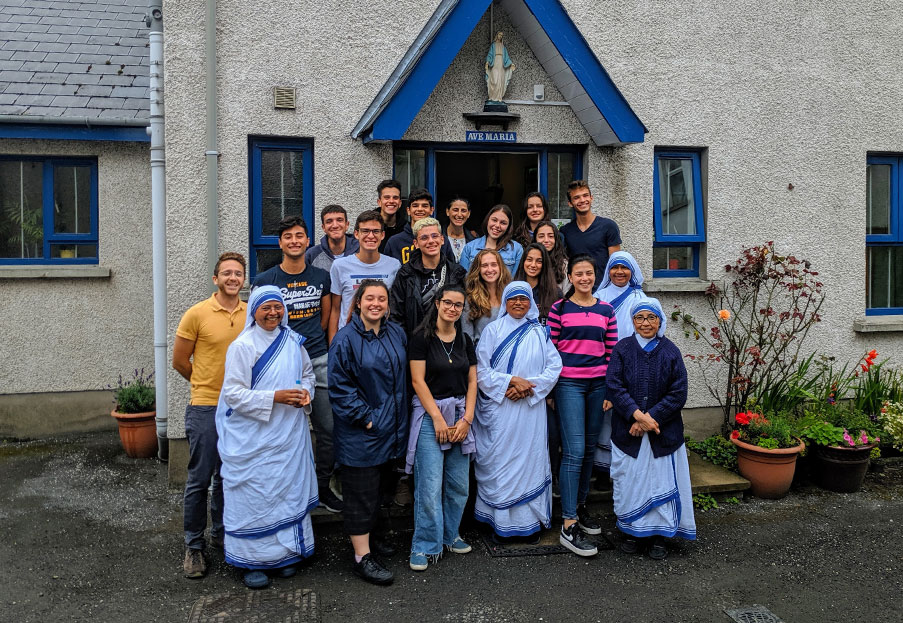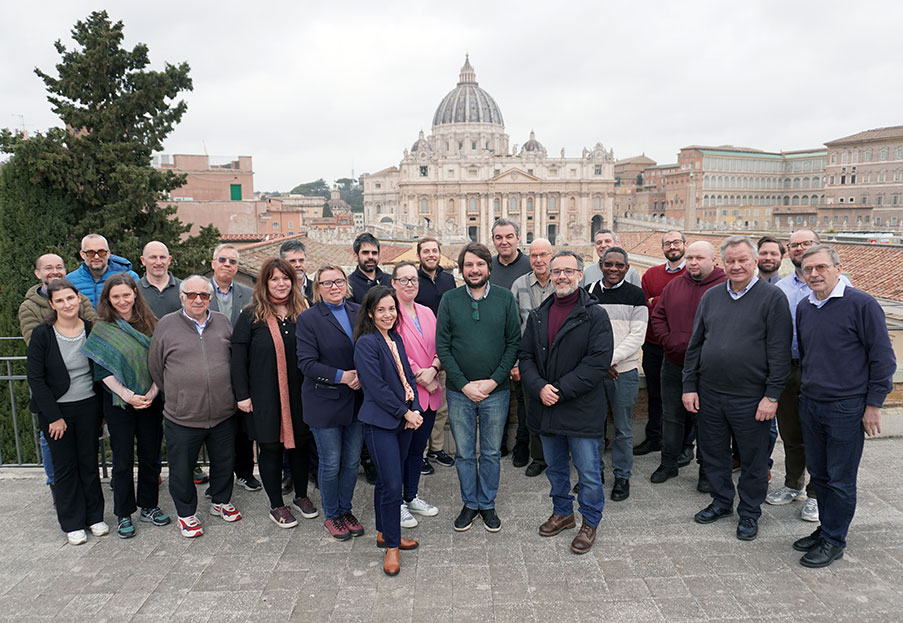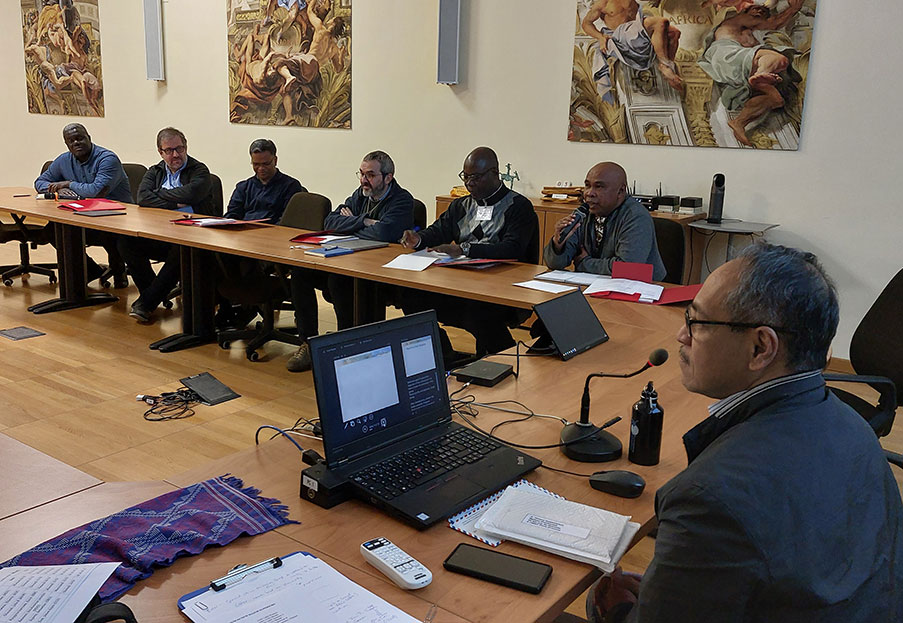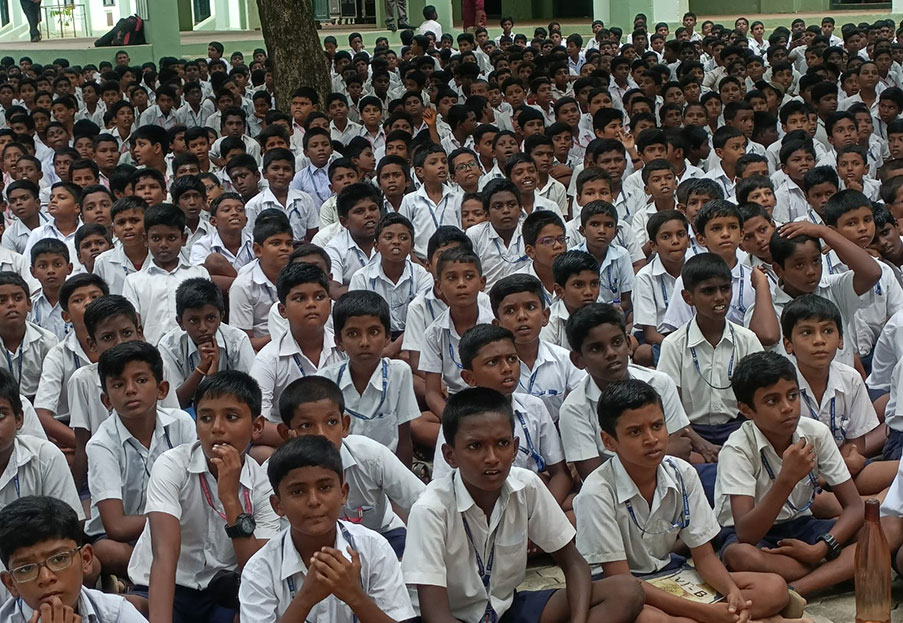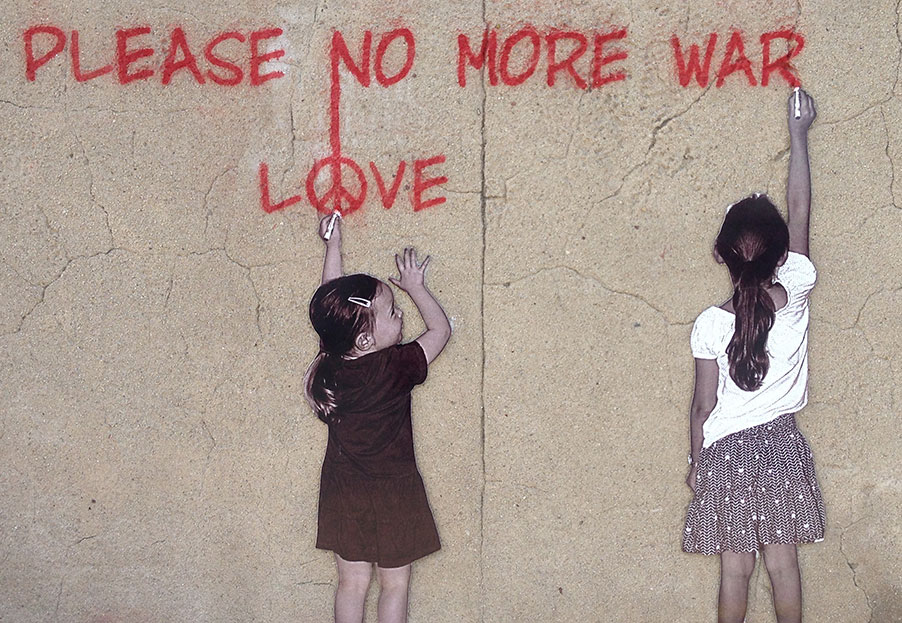Fight against social exclusion: a challenge for the Society in Western Europe
It is the end of the schoolyear. The whole team of the Toulouse production school is gathered in front of the secretary’s computer. She clicks and we discover that all our students have obtained the professional diploma as industrial mechanics of milling lathe operator. We are then filled with great joy. These young people came to us at the age of 15 or 16, discouraged, lacking self-confidence, after years of school failure, exclusion and being relegated to poor neighborhoods. Two years later, they have their first diploma and will find work in a valued profession at the forefront of the aeronautical industry. Joy for these young people, joy for the whole journey we have made together, but also the joy of that good news that tastes like the Gospel: the most marginalized in society can have a place in it.
This is what we experienced in the Loyola Formation network, made up of about fifteen formation centers of this type within the Province of French-speaking Western Europe (EOF), how powerful Ignatian pedagogy is with young people in difficulty. The social mix is also an important lever: among these centers are the production schools that the Institut Catholique des Arts et Métiers (ICAM - Catholic Institute of Arts and Crafts) wanted to open in each of its six engineering schools in order to truly offer a place to these young people, in the midst of university students.
No matter how rich our western societies are, they are continually generating exclusion. Thus, the social apostolate of our Province tries to fight against this, especially by demonstrating that the most fragile, the most marginalized, have their place, first and foremost in our institutions and communities. The battle has not been won, because we ourselves are also affected by this fundamental mechanism of our societies.
The education sector faces a major challenge:
expanding recruitment in some of our large schools in affluent neighborhoods to
prevent us from further reinforcing a kind of social inbreeding. Some schools
in France have taken action in this direction: opening small classes for pupils
who have dropped out of school or who come from abroad, cooperation with a
school in a very poor neighborhood, etc. Evidently, there is still much to be
done. In Belgium, things are moving faster, because now the law forces schools
to have a significant percentage of young people from disadvantaged backgrounds.
This openness is also happening little by little in other fields of the apostolate. For example, the spirituality center of Penboc’h, in Brittany, has just been re-founded with the project of welcoming disabled people or people in precarious social situations as well as executives from the business world. The Magis house, which we have just inaugurated in the heart of Paris, welcomes students for pastoral activities, young professionals who practice coworking and asylum seekers seeking integration. The Jesuit Refugee Service (JRS) has promoted the reception and accommodation of asylum seekers in families and, consequently, also in quite a few of our communities.
Together with this, our Province has been marked by the commitment of working priests since the 1960s. Through their work, their commitment to labor unions and their place of residence, some Jesuit companions joined those who were at the bottom of the social ladder and from whom the Church was far away. Today they are retired, they are elderly; some still work as volunteers in associations. The inheritance that they have left us consists of a few small community insertions in social housing in very working-class neighborhoods. Living there are companions who often have another mission, sometimes in the parish of the district or participating in local associations, and, in the Paris region, some Jesuit scholastics. The gratuitousness of the daily presence, the simplicity of this way of life and the proximity to the excluded allow us to interact with them and learn to see the world from their point of view.
Going to meet these people in their neighborhoods is a challenge for our Province, since most of the Jesuit companions, due to their mission, are mainly associated with well-to-do or very well-to-do social milieus. The great weakness of Christianity in popular environments, the decrease in our numbers, the concern to train elites and many other factors have led us to this situation.
Here are two movements of the social apostolate of our Province: on the
one hand, to try to include these people in our communities and institutions,
in order to allow them to recover a link with the established society; on the
other hand, for some Jesuit companions, to live simply in their neighborhoods
or to have a principal social activity working for their integration and for
greater justice in society.
[Article from "Jesuits - The Society of Jesus in the world - 2020", by Jérôme Gué SJ]
